What is a strike and why do they happen?
- Published
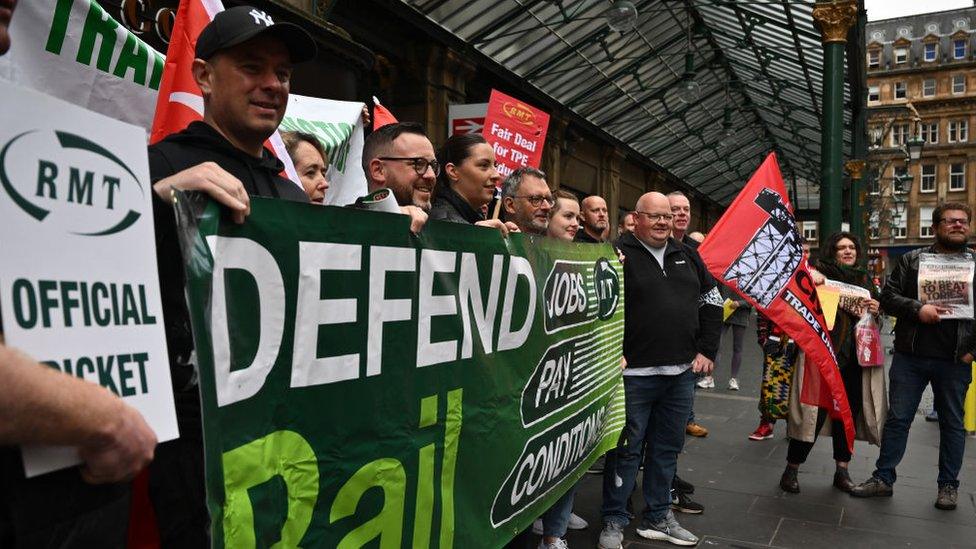
Employees may go on strike if they're unhappy with something in their workplace
There have been lots of reports in the news recently about strikes taking place across the UK.
Bin workers have been on strike in Edinburgh since 18 August because they are unhappy with the amount they are paid, with more bin workers in other parts of Scotland striking from 24 August.
Royal Mail postal workers are striking over pay on four days in August and September.
This summer saw the biggest strike action to take place in 30 years as thousands of employees didn't go to work during the railway strikes.
There have also been strikes in other industries - or types of jobs - with more action expected in the coming months.
Read our guide to find out more about strikes and why they happen...
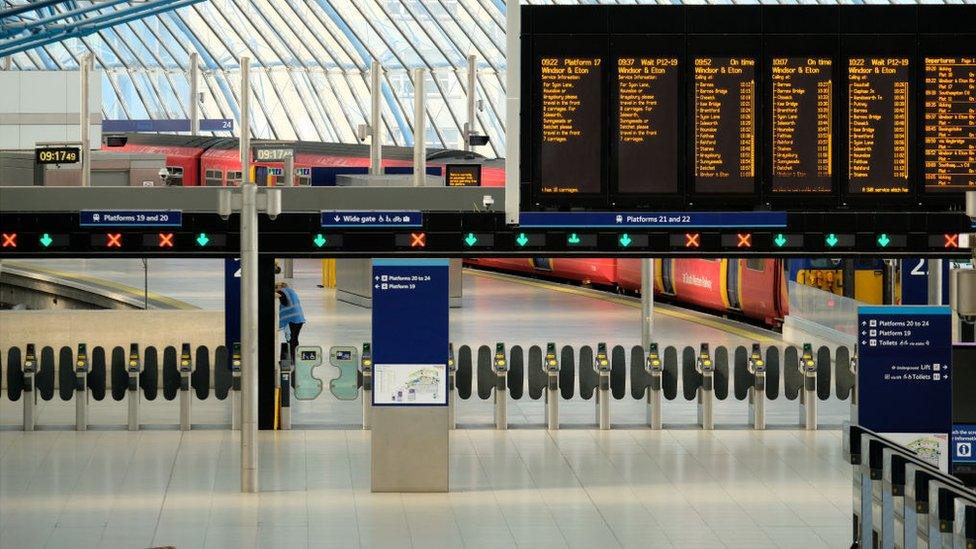
Lots of train services stopped operating during the strikes - leaving stations virtually empty
What is a strike and why do they happen?
A strike is when a group of workers come together and agree to stop working.
Employees do this when they want to protest against something they think is unfair where they work.
Strikes often happen because workers want those in charge to listen to what they want.
Employees hope that by stopping working, the people who make decisions about issues that affect them - such as pay or working hours - will listen to their demands.
Strikes can have a big impact on people's daily lives. For example, railway strikes can affect people's commute to work or school, and teacher strikes can lead to school closures if there aren't enough staff to teach students.
When a strike happens, there are often arguments about who is to blame for the disruption caused.
Groups that represent workers - called trade unions - will argue that the people in charge of companies - called employers - or sometimes the government, are to blame for not agreeing to their demands.
Employers might say that the demands being made by the workers are unreasonable, or that the disruption caused is unfair.

Strikes can happen because workers want politicians or their company bosses to listen to what they want
Why do workers go on strike?
Workers go on strike for a number of different reasons. They may agree to stop working:
to get improvements where they work
for more money
to make changes to their working hours
to stop their wages going down
because they think their company has been unfair
What is a trade union?
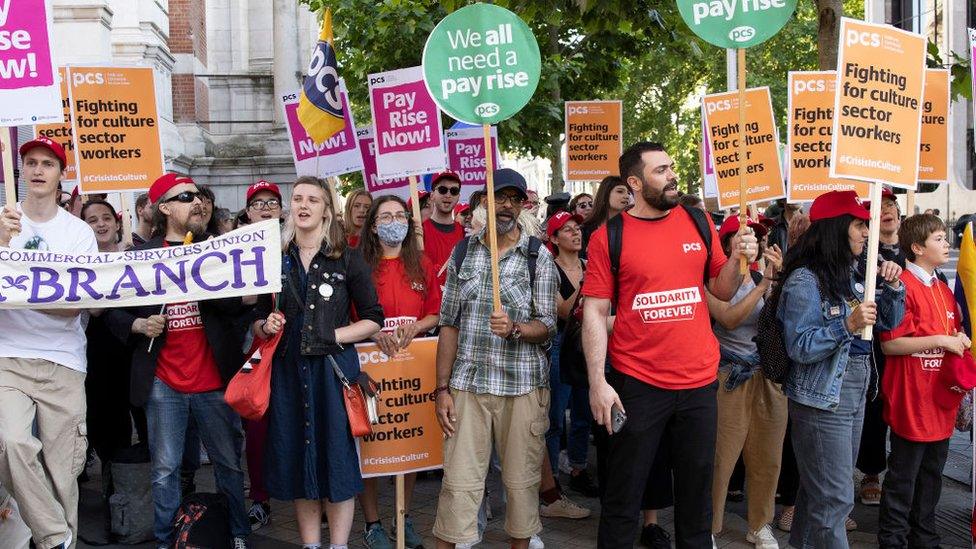
There are lots of different trade unions covering all types of industries
A trade union is an organisation of workers from a particular job type or company. They aim to help improve conditions for their members where they work.
There are unions for all sorts of different trades, from teaching and healthcare, to journalism and transport.
Trade unions speak on behalf of their members when it comes to important parts of their job like wages and working hours. They often have representatives who help with this.
Trade unions can also give advice to their members when they have problems at work, and organise strikes.
These organisations are important because, by joining together, a trade union may have a better chance to get the result they want - rather than individual workers trying separately.
What are wildcat strikes?
Wildcat strikes are sudden, unofficial strikes which aren't organised or authorised by a trade union.
Wildcat action can start over what may appear to be a small problem, like the length of a tea break or the treatment of a single worker.
They might start small but if workers are angry with their bosses, the strikes can spread fast and cause a lot of problems.
What are pickets?
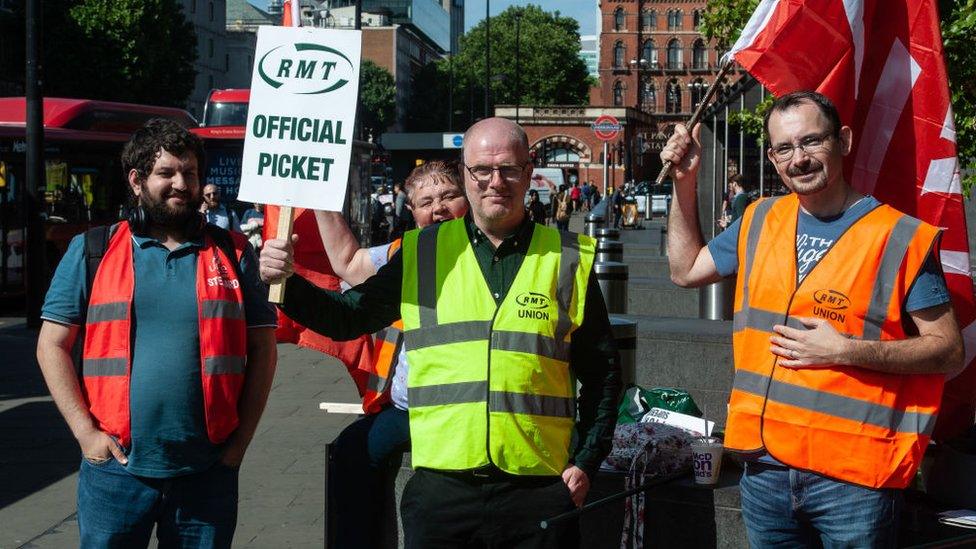
Pickets are groups of workers who are on strike that stand at the entrance to where they work.
The purpose of picketing is:
to stop workers going to work by persuading them not to
to tell the public about the strike
to persuade workers to take their union's side
How do strikes end?
Usually strikes end with some sort of settlement or compromise.
Pressure is often put on both sides to come to an agreement, but usually neither side gets everything they want.
Famous strikes in UK history
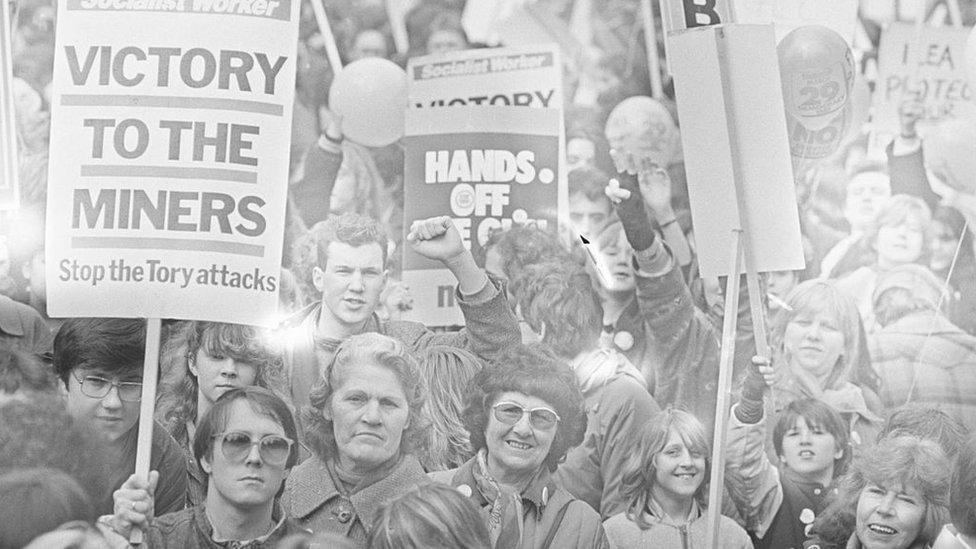
The 1984 Miners' Strike lasted almost a year
There are a number of famous strikes that have taken place in the UK. Some of the most famous include:
The General Strike, 1926
This lasted for nine days during which nearly all of the UK ground to a halt. It was the first of its kind and was held to support coal miners, who were having their wages cut and working hours increased. Huge numbers of bus, rail, printing, gas and electricity, building, iron, steel, chemicals and coal workers refused to go to work.
The Winter of Discontent, 1978-79
In the winter of 1978-79 there were widespread strikes because the government decided not to raise workers' pay. Lorry drivers, train drivers, doctors, rubbish collectors and even gravediggers were among the professions who took part.
The Miners' Strike, 1984-85
This was a long, severe strike - it happened because coal pits were being shut down and workers were losing their jobs. It lasted for almost a year.
- Published2 April 2019
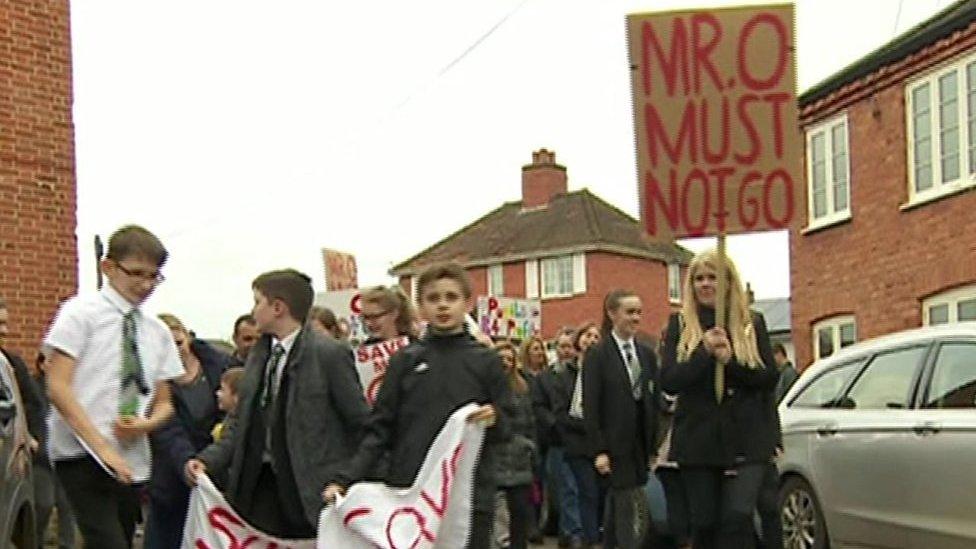
- Published21 June 2022

- Published22 June 2022

